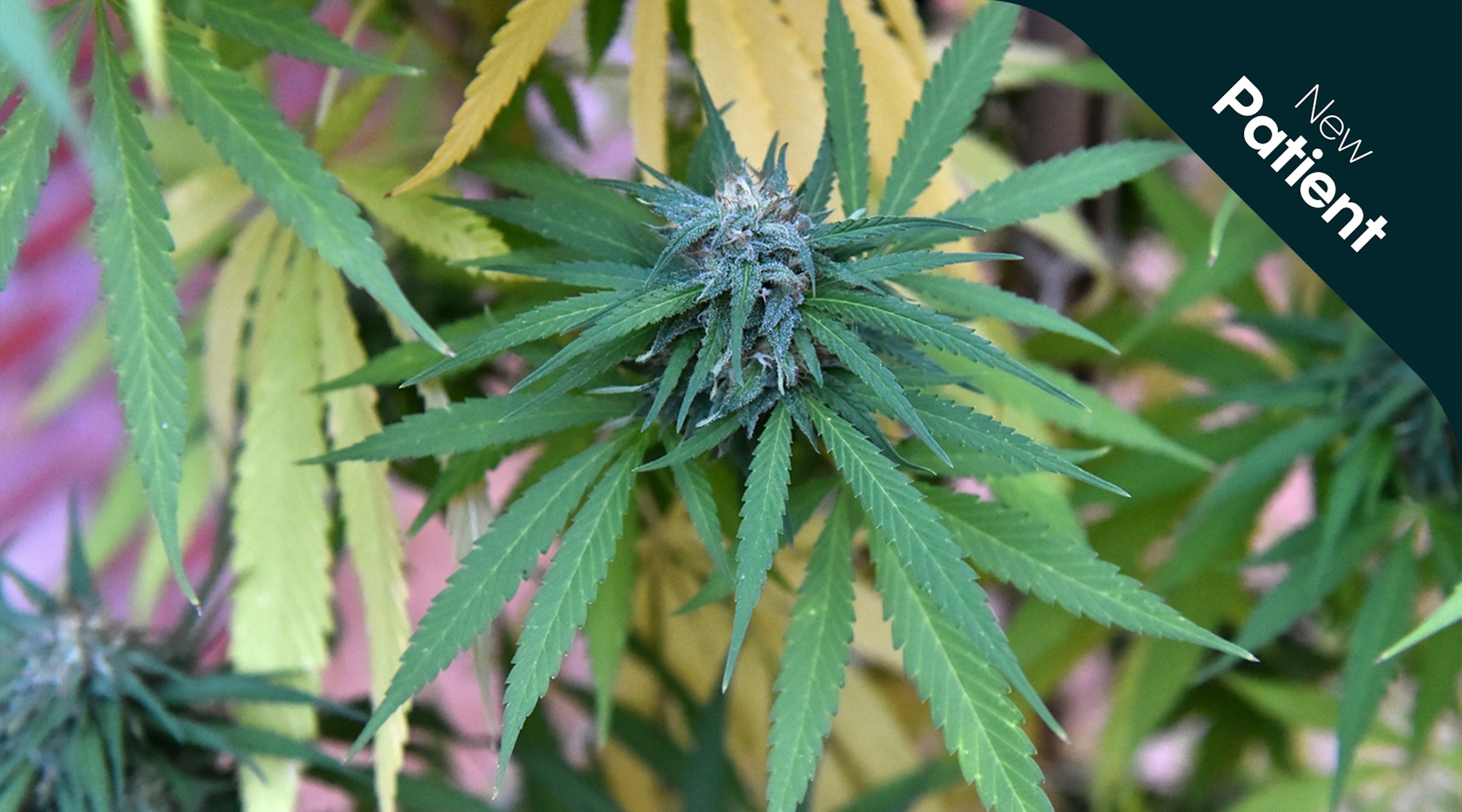Starting any new treatment option can be slightly daunting, but this is especially true when it comes to medical cannabis.
Thanks to the more than century-long campaign of cannabis prohibition and stigmatisation, there is still an undercurrent of misinformation and misunderstanding around this fascinating plant and its potential therapeutic benefits - even though it has been a legal treatment option here in the UK for almost six years.
But, thankfully, the tide is turning.
Contents
With the increasing access being granted to researchers looking into cannabis and its active compounds, the body of scientific evidence supporting its use as a legitimate medical treatment is ever-expanding.
Cannabinoids (along with terpenes) are the main focus of this research, so for today's 'New Patient' blog series instalment, we will give a brief (but thorough) overview of major cannabinoids and how they work.
What exactly are cannabinoids?
Cannabinoids are split into two groups:
- Endocannabinoids - These cannabinoids are naturally produced inside our bodies and work with the endocannabinoid system (ECS). They interact with the ECS receptors (CB1 and CB2) to keep everything balanced.
- Phytocannabinoids - These are cannabinoids produced by the Cannabis sativa L. genus of plants (along with some other plants, but we are focusing on cannabis today).
Some (but not all) phytocannabinoids have the ability to interact with the endocannabinoid system (ECS) in a similar way to our endocannabinoids, along with a range of other receptor sites, producing the therapeutic effects we have come to associate with medical cannabis.
For brevity's sake, we will stick to using the term 'cannabinoid' for the remainder of this blog while discussing cannabis-produced cannabinoids.
Which cannabinoids have been well-researched, and what are their benefits?
Cannabis and hemp plants produce at least 113 different cannabinoids.
You have probably heard of the two most famous —tetrahydrocannabinol (THC) and cannabidiol (CBD)—but as research into the plant progresses, the spotlight is being firmly shone on a range of other compounds.
Certain cultivars come with high concentrations of THC, others CBD, and some are more of a balance between the two. Most other cannabinoids come in much lower concentrations than THC and CBD.
Here is a brief summary of some key cannabinoids and their potential therapeutic benefits:
THC
Tetrahydrocannabinol (THC) is the most well-known cannabinoid.
It's responsible for both the psychoactive effects of cannabis and also some of its major therapeutic benefits. THC can be beneficial for patients who need to stimulate their appetite and manage pain, nausea and vomiting, inflammation, muscle spasticity, anxiety, and sleep issues, along with many other applications.
CBD
Cannabidiol (CBD) is a non-intoxicating and highly therapeutic cannabinoid.
It has been shown to have anti-inflammatory, anti-anxiety, antioxidant, pain management, anti-psychotic, and analgesic properties - making it useful for a range of conditions such as anxiety, seizures, chronic pain, and even as a complementary treatment option for some forms of cancer.
CBN
Cannabinol (CBN) is one of the more recently studied cannabinoids.
As THC degrades, it breaks down into CBN, which has been found to have sedative effects and can aid with sleep issues. It is also currently being studied for its antibacterial, pain management, and appetite-stimulating properties.
CBG
Cannabigerol (CBG) is often called the "mother of all cannabinoids," as it is the precursor to other cannabinoids.
It has shown potential in reducing inflammation and pain, as an antibacterial agent (it may be particularly helpful in managing antibiotic-resistant strains like MRSA), and in neuroprotection, supporting brain health by protecting nerve cells from damage.
CBC
Cannabichromene (CBC) is a non-intoxicating cannabinoid.
Recent research is showing that CBC may offer anti-inflammatory and pain-relieving properties. This makes it potentially beneficial for patients with arthritis, IBD, and other chronic inflammatory conditions. Another notable benefit of CBC is its potential to combat heavy acne by reducing sebum production and suppressing inflammation in the skin.
THCV
Tetrahydrocannabivarin (THCV) offers some unique therapeutic effects in the cannabis cannabinoid family.
Unlike THC, THVC has been shown to offer appetite-suppressing properties and potential uses in weight management. It may also help in regulating blood sugar levels and reduce insulin sensitivity - both of which may be beneficial for people with type 2 diabetes. It is currently being studied for its potential ability to reduce anxiety and panic attacks without the psychoactive effects typically associated with THC.
If you are interested in reading more on the benefits of cannabis-based medications, head to our blog and education hub - both are filled with useful information for patients, their families, medical professionals, and anyone else interested in medical cannabis.
To find out if you are potentially eligible for medical cannabis treatment with Releaf, check out our medical cannabis eligibility checker. It takes less than one minute to complete, and you'll receive your results instantly.
Share article
Did you like this article?
It is important to seek medical advice before starting any new treatments. The patient advisors at Releaf are available to provide expert advice and support. Alternatively, click here to book a consultation with one of our specialist doctors.
Elevate your wellness with medical cannabis
Get comprehensive care, convenience, and confidence with an all-in-one treatment plan.
Am I eligible?Authors
Sam North, a seasoned writer with over five years' experience and expertise in medicinal cannabis, brings clarity to complex concepts, focusing on education and informed use.
Editorial Policy
All of our articles are written by medical cannabis experts, guided by strict sourcing guidelines, and reference peer-reviewed studies and credible academic research. Our expert clinical team and compliance specialists provide valuable insights to ensure accuracy when required. Learn more in our editorial policy.
Need more help?










